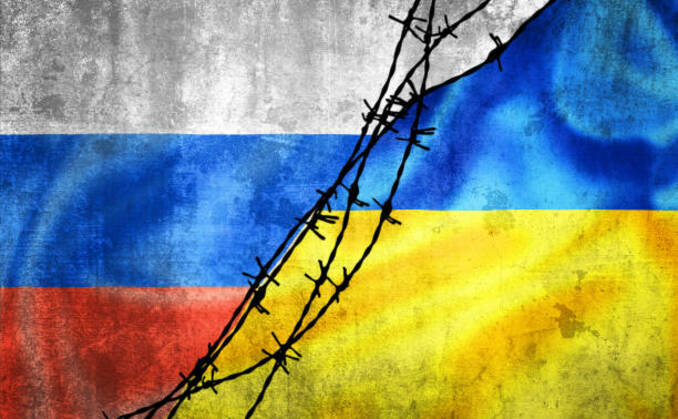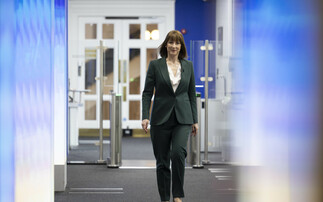
Russia's war in Ukraine has raised complex sustainability and ethical issues for companies and investors alike. Jenn-Hui Tan, Fidelity's Global Head of Stewardship and Sustainable Investing, examines some of these issues and looks at how organisations are trying to navigate them. There are no easy answers.
Is selling clothing and food to Russians fulfilling their human rights or funding a war? This is just one example of the kind of complex ethical issues companies now face. Investors too must grapple with doing the right thing while acting in the best interests of their clients.
Withdrawal from Russian assets
The most prominent issue has been the withdrawal of corporate and trading activity from Russia. While Western governments have sanctioned Russian individuals and institutions, many Western companies have been self-sanctioning, often on moral grounds. This may mark a moment of recalibration of sovereign environmental, social and governance (ESG) risk globally, and the increasing materiality of values-based business risk, which companies and investors will now have to consider.
In many cases, action over Ukraine was decisive. A swathe of well-known brands like McDonald's and Apple wasted little time before halting their Russian businesses. Coca-Cola, which first sold drinks in Russia towards the end of the Cold War for profit and as a form of diplomacy, has also pulled out. According to the Yale School of Management[1], more than 450 companies have announced their withdrawal from Russia's economy since Putin launched the war in February, despite in some cases the significant commercial impact this will have.
Other companies have found it less straightforward to weigh the different strands of E, S and G alongside ethical considerations.
Uniqlo-owner Fast Retailing, for example, originally planned to continue operations in Russia, arguing that "clothing is a necessity of life", before bowing to public pressure and temporarily closing its stores. Its rival Inditex has also temporarily closed outlets. Likewise, consumer goods giant Reckitt Benckiser, which has continued operations in the country in the face of public outcry, cited a "duty of care" to its 1,300 staff in Russia, and consumers' need for hygiene and health products. Both cases demonstrate companies trying to balance the social and ethical challenges they face.
Others have come under fire for not acting. Renault was among the companies singled out for reproach by Ukraine's president for continuing operations in Russia, and only recently announced a halt to them. Nestle faced a Twitter storm of criticism and later pulled chocolate and coffee brands from the country but continues to offer essentials such as infant food.
Fidelity's approach
At Fidelity International, we have prohibited new and additional purchases of Russian and Belarusian securities for the foreseeable future. And we will seek to reduce or divest from the rest where and when that is possible, in a way which protects the interests of our clients and mitigates unintended consequences. We will monitor events closely and continue to review our decision in the event of a significant change in circumstances.
Liquidity is affecting Russian, Ukrainian, and Belarusian instruments and we have implemented enhanced capabilities to track how risk characteristics are evolving. We also remain alert to the possibility of further financial sanctions, and second order effects of existing sanctions that raise technical questions, for example, about coupon or dividend payments.
Simultaneously, we are engaging with companies to understand their risk exposure to Russia, Belarus, and Ukraine through their operations and supply chains. We are also encouraging investee companies that are able to support those most affected by the war, through their products, services, and operations, to do so where possible.
Finally, we are watching how the application of sanctions may affect governance structures in the months ahead and how companies may seek to alter their ownership models, and the reasons for this - whether for ethical motives and/or access to capital.
ESG and defence spending
Another issue highlighted by the war is weapons investing. Many funds exclude areas such as tobacco and controversial weapons manufacturers in line with specific values.
Recent events however have sparked a debate about the eligibility of defence spending to be classified as a sustainable economic activity. If conventional weapons used for defence are moved off restricted lists, it is not a given that they would be included in ESG funds. Moreover, it is unlikely they will be included in international and national green or social taxonomies that underpin ESG fund classification.
Whatever the outcome of the debate, asset managers are likely to continue working closely with clients to determine whether any kind of allocation is appropriate or if there are limits on the scope for ESG investment in this area.
Getting to net zero
The energy transition is back in the spotlight. Just months on from COP26, at which many countries agreed to increase their Nationally Determined Contributions to cutting global emissions, Europe and other countries are scrambling for alternative sources of fossil fuels in an attempt to reduce their dependency on Russia.
Majors like BP and Shell have withdrawn from their Russian assets, while European countries that had previously been shutting coal plants are having to reopen them again. Western governments are asking OPEC countries to pump more oil and gas to help stabilise prices and prevent recession. Many populations already face much higher prices and governments are seeking to protect the most vulnerable. In the short term, therefore, emissions will rise. Longer-term, however, the case for switching to renewable sources to improve energy security has only increased. It has become imperative for E, S and G reasons to move away from gas and oil. That said, governments will need to balance the drive towards net zero with the need for secure and reliable energy supply.
The implications of this will be an expanded role for nuclear, more short-term investment in fossil fuels, swifter deployment of existing technologies such as wind and solar, greater focus on the long-term viability of supply chains, and a ramping up of the technological development required to tackle the intermittency of renewables.
Companies whose activities relate to hydrogen production and battery storage have begun to attract greater attention as a result. However, the path to net zero will not be easy, despite higher fuel prices making renewables more competitive.
Cybersecurity threat
Before the physical war began in Ukraine, an often-hidden cyber war was being waged. Now governments and companies are warning citizens and staff to be on much higher alert for digital attacks, and we expect greater focus and investment in cybersecurity in the months ahead.
We regularly engage with companies on their internet security, but estimates suggest only 25 per cent of corporations have adequate cyber protection.[2] This is despite an increasing number of transactions and sensitive information being stored online, a trend set to continue with developments such as the Internet of Things.
As a result, we think this is an area to watch, as the theft of data, the shutting down of vital services and travel disruption are all possible threats to society as well as individual companies, suppliers, and customers.
Adapting to an uncertain world
ESG issues were broad and often complex to manage before the war, but its arrival has brought often conflicting social and ethical considerations into sharp relief. Faced with this kind of shifting complexity, many ESG approaches may struggle to capture both the different order effects of different issues, how they interact with one another and how fast they can change.
For investors, granular sector expertise and strong relationships with corporates coupled with macro insights and a double materiality lens (the impact a company has on its environment and vice versa) can help, if not to see round corners, at least to be as prepared as possible for the dilemmas that may lie ahead.
This post is sponsored by Fidelity
[1] Source: Over 450 Companies Have Withdrawn from Russia—But Some Remain | Yale School of Management
[2] Source: https://www.bain.com/industry-expertise/technology/cybersecurity/
Important information
This content is for investment professionals only and should not be relied upon by private investors. The value of investments (and the income from them) can go down as well as up and you may not get back the amount invested. Investors should note that the views expressed may no longer be current and may have already been acted upon. Changes in currency exchange rates may affect the value of an investment in overseas markets. Investments in emerging markets can be more volatile than other more developed markets.. Reference to specific securities should not be interpreted as a recommendation to buy or sell these securities, but is included for the purposes of illustration only. A focus on securities of companies which maintain strong environmental, social and governance ("ESG") credentials may result in a return that at times compares unfavourably to similar products without such focus. No representation nor warranty is made with respect to the fairness, accuracy or completeness of such credentials. The status of a security's ESG credentials can change over time. Issued by Financial Administration Services Limited and FIL Pensions Management, authorised and regulated by the Financial Conduct Authority. Fidelity, Fidelity International, the Fidelity International logo and F symbol are trademarks of FIL Limited. UKM0422/370656/SSO/NA












